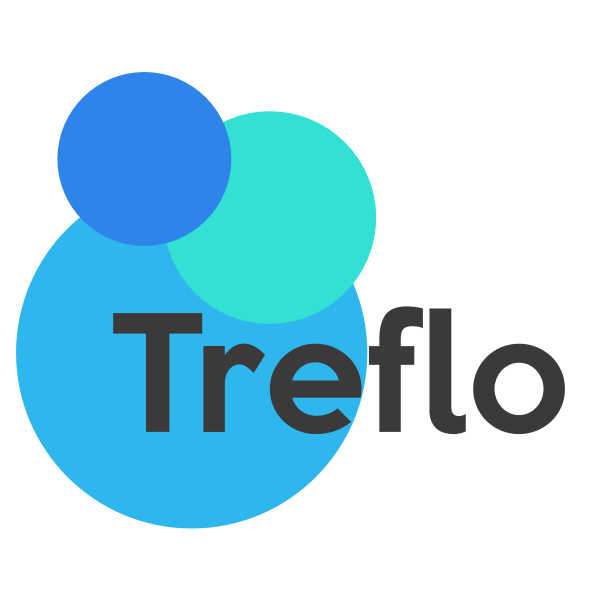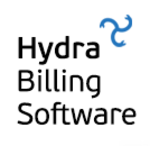Description

Smart Workshop

Treflo
Comprehensive Overview: Smart Workshop vs Treflo
As of my last update, I'm not aware of a specific product or company called "Smart Workshop, Treflo." However, I can provide a general approach on how to analyze a business or product within a workshop or business management software context. If this is a hypothetical product or a newer service not in my dataset, the following structure may help in analyzing any tool in this category:
a) Primary Functions and Target Markets
Primary Functions:
-
Inventory Management: Streamlining inventory control, tracking stock levels, orders, sales, and deliveries to maintain optimum inventory levels.
-
Job Scheduling and Management: Facilitating the organization, planning, and tracking of jobs or tasks to improve workflow efficiency.
-
Customer Relationship Management (CRM): Managing interactions with current and potential customers to enhance customer satisfaction and retention.
-
Invoicing and Billing: Automating the creation, processing, and tracking of invoices and bills to ensure timely payments.
-
Data Analytics and Reporting: Offering insights through comprehensive reports and analytics to aid decision-making and improve business performance.
-
Integration Capabilities: Allowing for seamless connectivity with other business tools like accounting software, CRM, and ERP systems.
Target Markets:
-
Automotive Repair Shops: Independent garages and large service centers needing robust management systems.
-
Manufacturing Workshops: Facilities seeking efficient production management and inventory tracking.
-
Carpentry and Woodworking Studios: Workshops that require precise material tracking and job scheduling.
-
General Service Industries: Various sectors that need comprehensive workshop management solutions.
b) Market Share and User Base
To assess this for "Smart Workshop, Treflo," you would:
-
Research Industry Reports: Look for publications or market research firms that cover workshop management or business management software sectors.
-
Evaluate Competitor Offerings: Compare against known entities like Autodesk Workshop, Workshop Software, and others to gauge relative popularity and market penetration.
-
Analyze Adoption Trends: Check adoption statistics, if available, perhaps through industry reports or case studies.
-
Assess User Base Metrics: Find data on the number of licenses sold, number of active users, or business accounts managed by the platform.
c) Key Differentiating Factors
-
Feature Set:
- Comprehensive features vs. specialization in one or two functions (e.g., specialized in automotive vs. general workshop).
-
User Interface and Experience:
- Intuitive ease of use or complex, customizable interfaces for tailored needs.
-
Pricing Structure:
- Subscription-based pricing vs. one-time purchase, tiered levels based on features or user capacity.
-
Scalability:
- Ability to scale from single-location use to multi-site enterprises.
-
Technological Advancements:
- Utilization of emerging technologies like AI for predictive analytics, IoT for real-time monitoring, etc.
-
Customer Support and Community:
- The robustness of customer support (24/7 availability, multilingual support) and size/engagement of the user community for peer assistance.
Without specific details on Smart Workshop, Treflo, this outline offers a generic understanding. Gathering accurate insights would involve further research into any available business data, customer feedback, and industry comparisons.
Contact Info

Year founded :
Not Available
Not Available
Not Available
Not Available
Not Available

Year founded :
2019
+44 800 532 4194
Not Available
United Kingdom
http://www.linkedin.com/company/treflo
Feature Similarity Breakdown: Smart Workshop, Treflo
To break down the feature similarities and differences between Smart Workshop and Treflo, we can examine various aspects such as core features, user interfaces, and unique offerings. Please note that the details provided are based on typical features of workshop management and business process management software, given that I don't have access to specific proprietary information about these products.
a) Core Features in Common
-
Inventory Management:
- Both platforms likely offer inventory management, helping businesses keep track of their stock levels, reorder supplies, and manage parts efficiently.
-
Job/Project Management:
- A feature for scheduling and managing jobs or projects is common, allowing users to allocate resources, track progress, and manage deadlines.
-
Customer Relationship Management (CRM):
- Basic CRM functionalities are often included, enabling businesses to manage customer data, communication, and service history.
-
Invoicing and Billing:
- Both may offer invoicing features to create and send invoices, process payments, and manage financial transactions.
-
Reporting and Analytics:
- Generating reports and analyzing data to understand business performance is a fundamental feature that these products might share.
-
Integration Capabilities:
- Integration with other tools such as accounting software, email, or third-party apps is typically available to streamline operations.
b) Comparison of User Interfaces
-
Usability:
- Both products are expected to focus on user-friendly interfaces, though the specific design approach (modern flat design vs. traditional) might vary.
-
Customization:
- The depth of customization offered in dashboards and workflows could differ, with one perhaps providing more drag-and-drop components or personalized views.
-
Navigation:
- While both prioritize ease of navigation, one might emphasize quick access to frequently used features, reducing the number of clicks needed for task completion.
-
Mobile Accessibility:
- Support for mobile devices could vary in terms of native application availability and the extent of functionalities accessible on a mobile platform.
c) Unique Features
-
Smart Workshop:
- If this platform specializes in workshop management, it may offer advanced features like detailed machinery scheduling, equipment diagnostics and maintenance alerts, or integration with vehicle telematics.
-
Treflo:
- Treflo might differentiate itself with strengths in modular business management, possibly providing unique capabilities in supplier management, multi-currency transactions, or detailed financial modeling.
These differences and commonalities ultimately depend on the specific offerings of each product and the industries they cater to. For an accurate feature-by-feature comparison, accessing detailed product documentation or vendor-specific information would be recommended.
Features

User-Friendly Interface
Collaboration Tools
Comprehensive Reporting
Efficient Task Management

Detailed Analytics
Efficient Project Management
User-Friendly Interface
Seamless Integration
Security and Reliability
Best Fit Use Cases: Smart Workshop, Treflo
Smart Workshop and Treflo cater to different aspects of business operations and can be beneficial in various scenarios. Let's delve into how these products serve different business needs:
Smart Workshop
a) Best Fit Use Cases:
-
Manufacturing Businesses:
- Small to Medium Workshops: Smart Workshop is particularly well-suited for small to medium-sized manufacturing workshops that need efficient project management, equipment tracking, and workflow optimization.
- Custom Fabrication and Prototypes: Businesses focusing on custom orders or prototypes can benefit from Smart Workshop's ability to manage bespoke production schedules and inventory.
-
Artisan and Craft Industries:
- Custom Craftsmanship: For artisan businesses producing custom or limited edition items, Smart Workshop can organize production processes and manage supply chain specifics.
-
Automotive and Aerospace Sectors:
- Component Manufacturing: These sectors can use Smart Workshop for precision tracking of parts and assembly processes, ensuring quality control and compliance with industry standards.
d) Industry Verticals and Company Sizes:
- Small to Medium Enterprises (SMEs): Typically, these companies benefit from Smart Workshop due to its scalable solutions that provide robust project and workshop management without the complexity often associated with large enterprise systems.
- Niche Industries: Industries that rely on customized manufacturing processes find Smart Workshop invaluable due to its flexibility and focus on precise project tracking.
Treflo
b) Preferred Option Use Cases:
-
Supply Chain Management and Inventory Control:
- Retail and Wholesale Distribution: Treflo is ideal for businesses involved in retail and distribution requiring sophisticated inventory management and just-in-time supply chain operations.
-
E-commerce and Multi-channel Retail:
- Online Business Operations: With features like real-time inventory updates and order processing, Treflo can significantly enhance e-commerce businesses, ensuring seamless integration across multiple sales channels.
-
Construction and Project Management:
- Construction Firms: Treflo’s project management capabilities allow construction companies to track project timelines, resources, and budgets efficiently.
d) Industry Verticals and Company Sizes:
- Medium to Large Enterprises: These organizations often require the extensive inventory management and supply chain capabilities that Treflo provides.
- Logistics and Distribution Companies: As logistics heavily depend on efficient inventory control and order fulfillment, Treflo’s features align well with the needs of this vertical.
- Industry Agnostic: Due to its comprehensive capabilities, Treflo can adapt to various industries that require detailed inventory management and project oversight.
In summary, Smart Workshop is best for small to medium-sized workshops within manufacturing and artisan industries focused on bespoke production, while Treflo excels in logistics, large-scale retail, and e-commerce operations needing robust inventory and project management solutions. Both products scale to meet the needs of different industries and company sizes, providing adaptability and efficiency for their specific domains.
Pricing

Pricing Not Available

Pricing Not Available
Metrics History
Metrics History
Comparing teamSize across companies
Conclusion & Final Verdict: Smart Workshop vs Treflo
To provide a conclusive verdict on Smart Workshop versus Treflo, we must examine each product's unique strengths and potential drawbacks, as well as any context-specific recommendations for users considering these tools.
a) Considering all factors, which product offers the best overall value?
Choosing the best overall value between Smart Workshop and Treflo depends on the specific needs and context of the user. If your primary focus is on comprehensive workshop management with robust scheduling and customer engagement tools, Smart Workshop might offer the best value. On the other hand, if your emphasis is on streamlined project tracking and financial management for small to medium-sized teams or enterprises, Treflo could be more valuable.
b) Pros and Cons of Choosing Each Product
Smart Workshop
-
Pros:
- Tailored for workshop management, offering specialized features such as resource scheduling, inventory control, and client communication tools.
- Provides industry-specific insights and analytics, helping workshops optimize operations and improve customer satisfaction.
- Intuitive, user-friendly interface that caters to users with varying technical skills.
-
Cons:
- May have limitations if used outside its intended industry, where general project management features are required.
- Customization options could be limited compared to more general platforms, potentially hindering integration with wider business management systems.
- The cost might be higher if features are not fully utilized by smaller operations.
Treflo
-
Pros:
- Offers versatile project management and financial tracking capabilities, adaptable to various industries beyond workshops.
- Provides strong collaboration tools, enhancing team communication and efficiency on diverse projects.
- Frequently updated with new features to keep up with evolving business needs and technologies.
-
Cons:
- May lack some industry-specific tools that businesses like auto repair shops or manufacturing workshops might require.
- Initial setup and onboarding might be more complex for users unfamiliar with comprehensive project management solutions.
- Potentially overwhelming for small teams that require only basic management features.
c) Specific Recommendations for Users
-
For Dedicated Workshop Operations:
- Users operating in highly specific workshop environments like auto repair or bespoke manufacturing are likely to benefit more from Smart Workshop due to its industry-specific features. It simplifies everyday tasks and optimally aligns with the unique needs of these settings.
-
For Versatile Management Needs:
- Treflo is recommended for users looking for a flexible and broader project management solution that supports financial integration and can be adapted to multiple workflows. It's ideal for businesses that handle varied projects across different domains.
In conclusion, the decision between Smart Workshop and Treflo should be influenced by the specific operational needs, industry focus, and desired features of the business in question. An assessment of which features align more closely with existing workflows and future goals is crucial in determining the best overall value for each user's context.
Add to compare
Add similar companies




